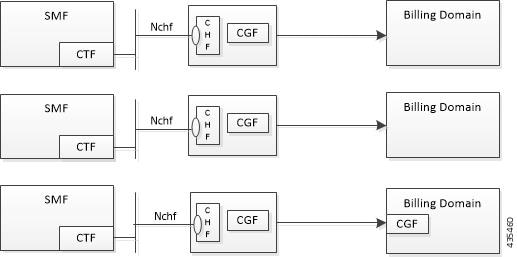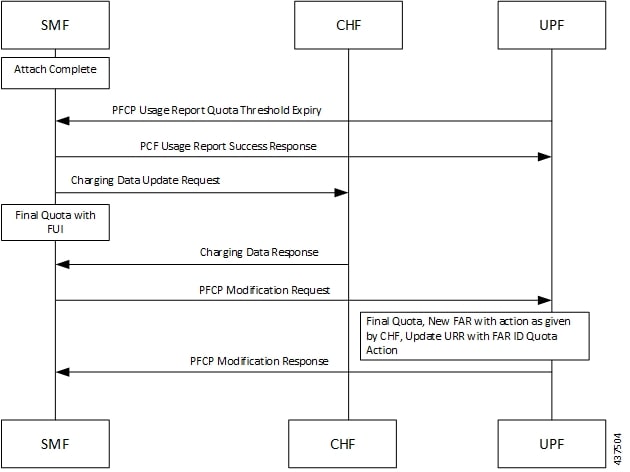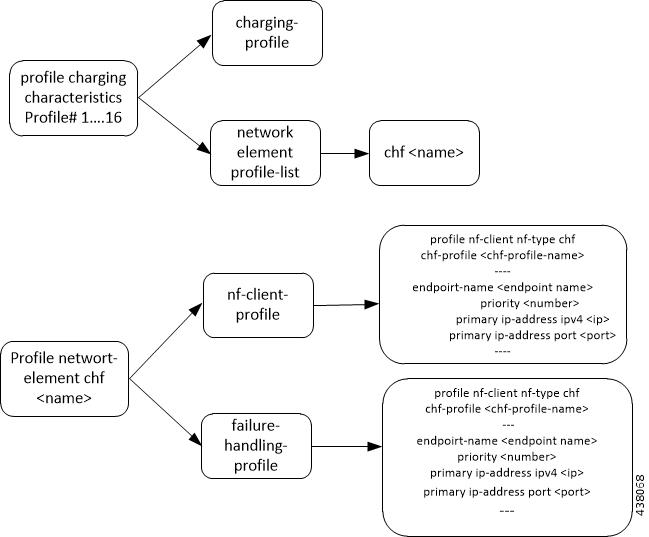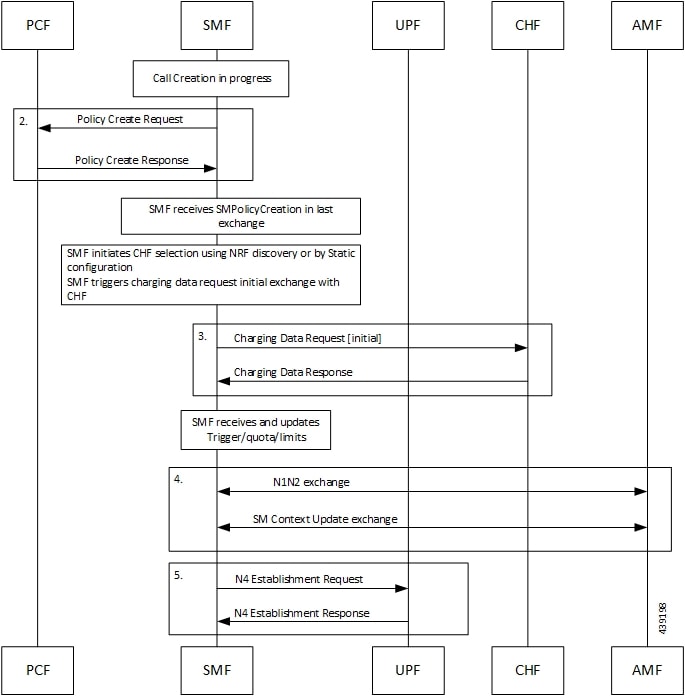| Configuration |
Config Applied on both SMF and UPF |
Config Applied only on SMF |
Config Applied only on UPF |
| Rulebase addition |
Existing Session: Continue to use the current rulebase value
New Session: No impact for the new session
|
Existing Session: Change in the rulebase gets rejected at UPF
New Session: Session creation fails at UPF for this rulebase
|
Existing Session: Change in the rulebase gets rejected at SMF
New Session: Session creation fails at SMF for this rulebase
|
| Rulebase removal |
Existing Session: Not allowed without node drain
New Session: No impact for the new session
|
Existing Session: Not allowed without node drain
After the configuration change, the rulebase configuration remains stale on SMF if the rulebase removal on UPF is missed
New Session: No impact for the new session
|
Existing Session: Not allowed without node drain
After the configuration change, the rulebase configuration remains stale on UPF if the rulebase removal on SMF is missed
New Session: No impact for the new session
|
| Ruledef addition |
Existing Session: Activates the new rule successfully
New Session: No impact for the new session
|
Existing Session - Static Rule: The UPF neither activates the rule nor sends the report for this rule.
Existing Session - Predefined Rule: Fails to activate the new rule until the UPF receives it.
New Session: Same as the existing session
|
Existing Session - Static Rule: The UPF activates this rule and reports the usage. The SMF has the charging data for this RG+ServID. It creates dummy ChargParam
and associates URR to it.
Existing Session - Predefined Rule: Fails to activate the new rule until the SMF receives it
New Session: Same as the existing session
|
| Ruledef deletion |
Existing Session: The current flows remain as is. If the flow is not created, it will never be created for this session. The SMF or UPF does
not remove the associated charging.
New Session: No impact for the new session
|
Existing Session - Predefined rule : The SMF rejects this rule creation.
Static and Activated Predefined Rules: Existing flows remain as is. The SMF or UPF does not remove the associated charging. The received usage is reported successfully.
If the SMF has not received the first usage report and when the first report arrives, the SMF creates chargParam/Urr context
from RG+ServID.
New Session: Same as the existing session
|
Existing Session - Predefined rule: The SMF continues to allow this rule creation but fails at the UPF.
Static and Activated Predefined Rules: The UPF continues with the created URR for these flows. The SMF reports the usage without any issue.
New Session: Same as the existing session
|
| Charging Action addition with new RG/Svc Id (With addition of new rules associated to that CA) |
Existing Session - Static Rule: The SMF creates charging entry for this RG when the first URR is received.
Existing Session - Predefined Rule: The SMF activates the rule based on the PCF trigger.
New Session: No impact for the new session
|
Existing Session - Static Rule: The UPF does not activate this flow. The SMF never receives the usage.
Existing Session - Predefined Rule: The UPF fails to install predefined rule due to the unavailability of ruledef info.
New Session: Same as the existing session
|
Existing Session - Static Rule: The UPF activates this flow. The SMF creates the charging entry for this RG when the first URR is received.
In this case, the SMF does not find Charging-action with this RG+ServID. It creates dummy ChargParam with the received RG+ServID.
Existing Session - Predefined Rule: Same as mentioned for the static rule.
New Session: Same as the existing session
|
| Charging action (and associated rules) removal |
Existing Session - Static Rules: The SMF and UPF continue with the current flow and report any URRs for this RG.
Predefined Rules:
The SMF and UPF continue with the current flow and report any URRs for this RG. Once the rule is deactivated, it will not
be activated again.
New Session: No impact for the new session
|
Existing Session - Static Rules: The SMF and UPF continue with the current flow and report any URRs for this RG.
Predefined Rules:
The SMF and UPF continue with the current flow and report any URRs for this RG. Once the rule is deactivated, it will not
be activated again.
New Session: Same as the existing session
|
Existing Session - Static Rules: The SMF and UPF continue with the current flow and report any URRs for this RG.
Predefined Rules:
The SMF and UPF continue with the current flow and report any URRs for this RG. Once the rule is deactivated, it will not
be activated again.
New Session: Same as the existing session
|
| RG/Svc Id, Online/Offline Config changed within CA |
Static Rules and Already Active Predefined Rules: The UPF creates new URRs and reports them. The SMF reconciles from URR ID table and creates charging data for these URRs
as and when reported.
Post config change activation of predefined rules: No issues. Both SMF and UPF are in sync.
New Session: No impact for the new session
|
Static Rules and Already Active Predefined Rules: The UPF continues reporting with old URR ID and the SMF continues to report it without any issue.
Post config change activation of predefined rules: Same as Static Rules
New Session: The UPF rejects the establishment request if the predefined rules are activated during session establishment.
|
Static Rules and Already Active Predefined Rules: The UPF creates new URRs and reports them. The SMF reconciles from URR ID table and creates dummy chargParam and associates
URR to it.
Post config change activation of predefined rules: Same as Static Rules
New Session: The UPF rejects the establishment request if the predefined rules are activated during session establishment.
|
|
URR Id table entry addition
(New RG addition)
|
No action needed on SMF |
No action needed on SMF |
The UPF creates URR. |
| URR Id table entry removal |
No impact
|
No impact |
The UPF creates URR. The removal has no impact on the created URR.
|
| URR Id table entry modification |
No impact |
No impact |
The UPF creates URR. Removal has no impact on the created URR.
If the same URR-id is allocated to different RG+ServID, the removal impacts the URR. The UPF fails to create new URR for the
new RG+ServId.
|





 Feedback
Feedback